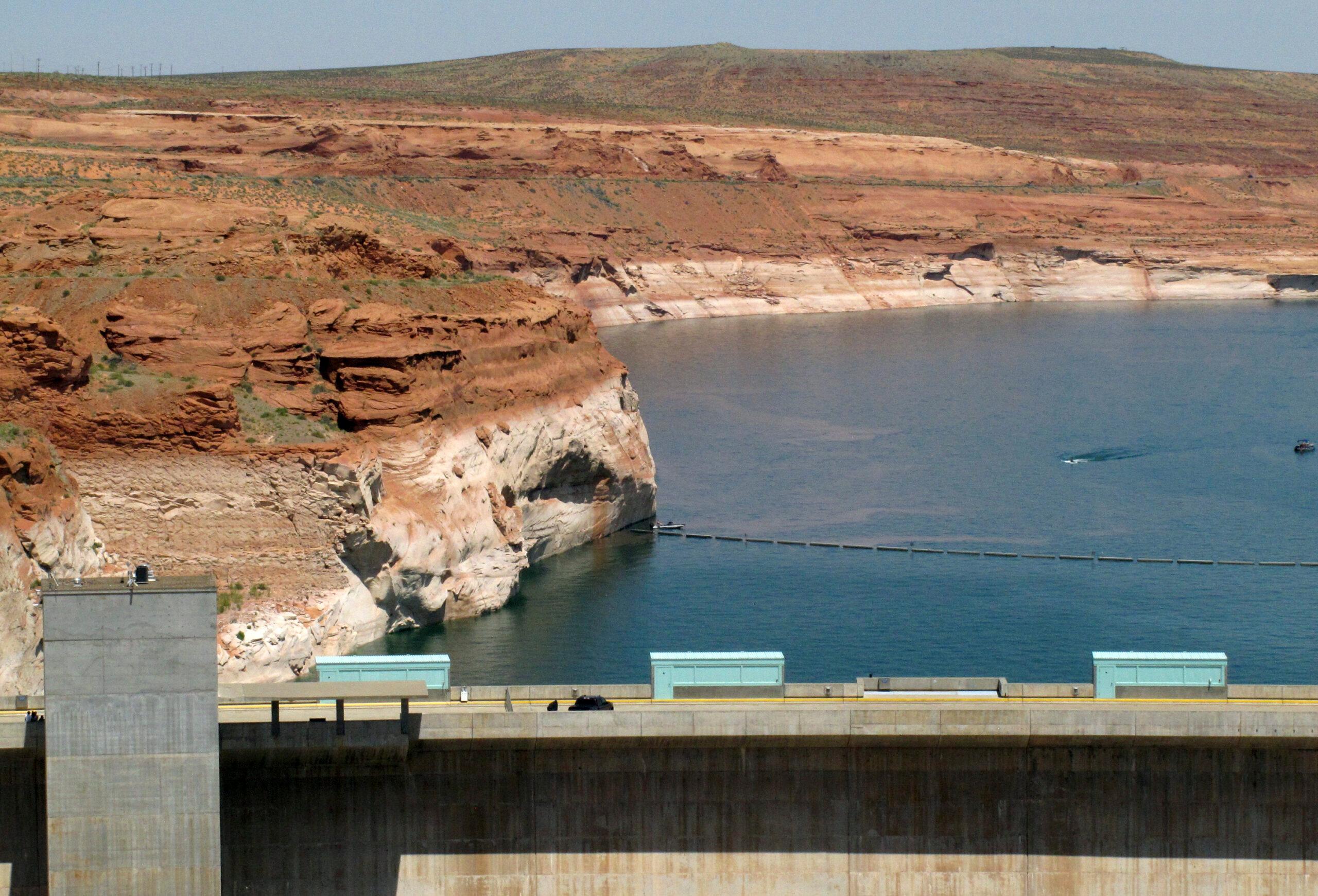
Lake Powell, the second-largest reservoir in the U.S., has dropped to its lowest level on record. The water and power produced by the system supplies millions of people in the West.
On July 23, the reservoir’s level fell to 3,555.09 feet. The previous record low was set in April 2005.
A 20-year megadrought and hotter temperatures with climate change have contributed to shrinking water supplies in the Colorado River.
The Bureau of Reclamation had announced last week that it was likely this weekend that the reservoir would hit its lowest level since first being filled in the 1960s with water from the Colorado River.
Why Lake Powell matters to Colorado
Lake Powell is on the border of Utah and Arizona, but the reservoir is important to Colorado water managers because the state is part of a 100-year-old water-sharing agreement with numerous states.
The reservoir was created as a storage bucket to help states in the Upper Colorado River Basin — Colorado, New Mexico, Utah and Wyoming — send enough downstream water to the Lower Basin, including Mexico, Arizona, California and Nevada, to meet their obligations.
Colorado Water Conservation Board director Becky Mitchell spoke about the impacts of the drought at a recent board meeting.
"This is an incredibly serious time for all of us,” Mitchell said. “We have a responsibility within the state of Colorado to protect all types of users of the Colorado River water."
Colorado will release water from Blue Mesa Reservoir
Because the reservoir’s level continues to drop, emergency releases of water from reservoirs upstream of Lake Powell are already underway. Releases from Blue Mesa Reservoir in southwest Colorado will begin in August, and will result in an eight-foot drop.
The seven basin states agreed in the 2019 Colorado River Drought-Contingency Plan that if Lake Powell is projected to drop below 3,525 feet, the Bureau of Reclamation can send more water to Lake Powell from these upstream reservoirs. The latest 24-month projections show that it’s likely to drop below that critical threshold next year.
At the July Colorado Water Conservation Board meeting, Mitchell said she wanted to make it clear: Colorado and the other Upper Basin states did not ask for the emergency reservoir releases to happen.
“But we know that it’s a part of the dire situation that we are in,” she said.
If Lake Powell drops below that critical threshold of 3,525 feet it would jeopardize Glen Canyon Dam’s ability to produce hydropower for multiple states. It would also make it more challenging for Colorado and the other Upper Basin states to meet their obligations of sending a certain amount of water downstream.









